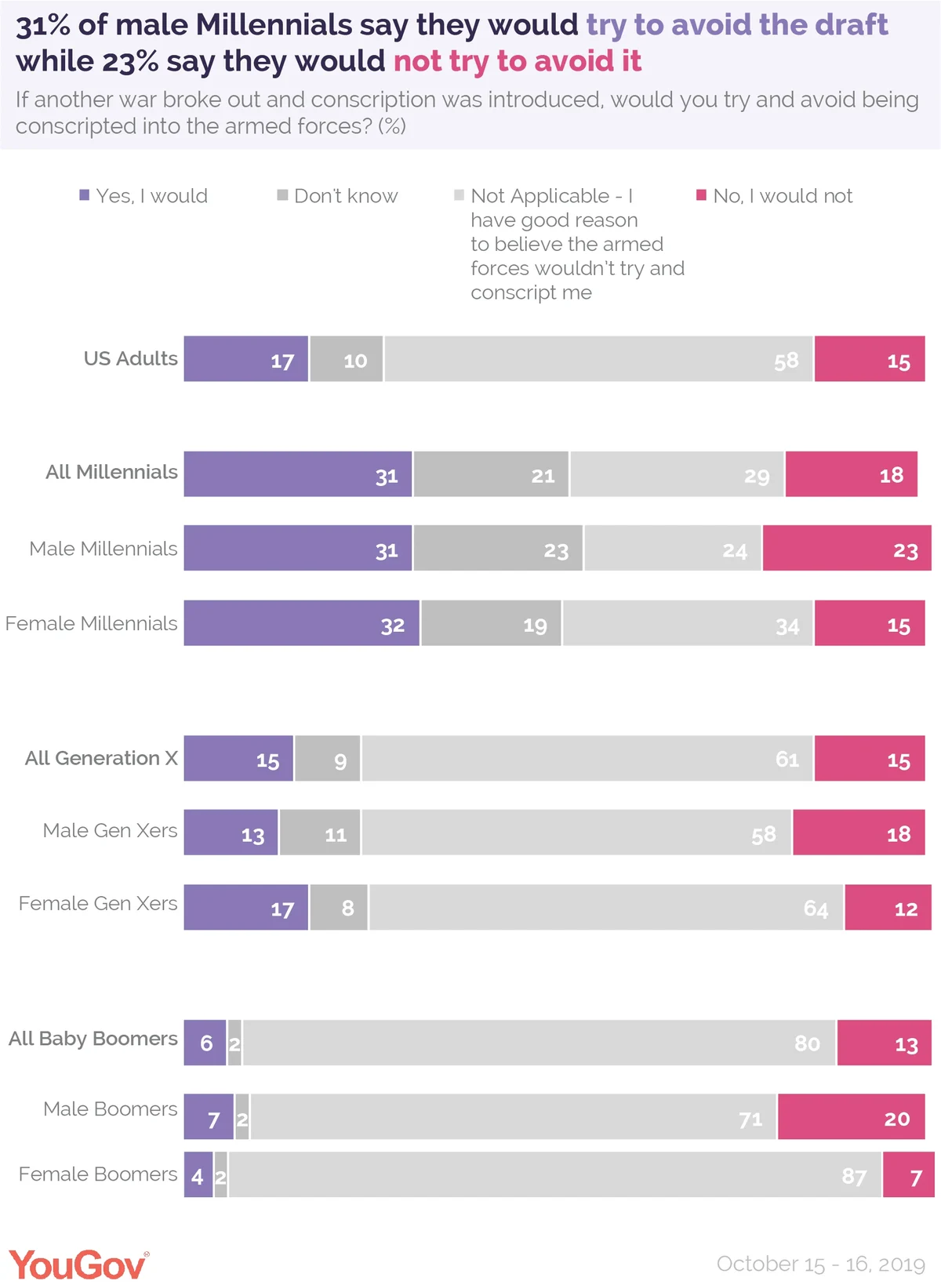Fifty years ago — on December 1, 1969 — a lottery was held to begin drafting Americans into military service for The Vietnam War. This lottery marked the first time since World War II that the US drew numbers to determine who would serve in the military, and it came amid anti-war protests that showed how opposed young people were to selective service. There was no legal avenue to avoid the draft, but many young men tried to find excusable reasons.
Young men today would do the same if there was a draft, according to data from YouGov.
Three in 10 (31%) male Millennials say that they would “try to avoid being conscripted into the armed forces.” Since all males between ages 18 and 25 must enroll in the US draft, this group is the most likely to be impacted by selective service. Women and older generations were more likely to select “Not Applicable - I have good reason to believe the armed forces would not try to conscript me (e.g. because I am too old, have a disability).”
Taking into account the eligibility difference, older generations were less likely to indicate that they would try to avoid the draft: just 13 percent of male Gen Xers and 7 percent of male Baby Boomers say they would try to circumvent conscription. About one in five male Millennials (23%), male Gen Xers (18%) and male Baby Boomers (20%) say they would not try to avoid being conscripted into the armed forces.

The question was also posed to women, though they are not required to sign up for the US draft and had a higher percentage that responded: “I have good reason to believe the armed forces would not try to conscript me.” About one-third of female Millennials (32%) say that they would “try to avoid being conscripted into the armed forces” while 17 percent of female Gen Xers and 4 percent of female Baby Boomers say the same.
When it comes to voluntary military service, about three in ten (29%) male Millennials say they would offer to serve in the armed services if another war broke out — making them the most likely subgroup to volunteer among Millennials, Gen Xers, and Baby Boomers. That number is about half (15%) for female Millennials who would volunteer to serve in the event of a war.
Even among male Millennials, though, a plurality (46%) say they would not volunteer to serve in a war. Two-thirds of Americans overall (69%) say they would not volunteer to serve, while just 15 percent would.
More than three-quarters (78%) of Americans think it's "very likely" or "somewhat likely" that America will send troops into a new war within the next 40 years. Other YouGov data from June 2019 found that a majority (59%) of Americans believe another “world war” is likely to take place in the next 40 years.
Related: Americans think World War II was justified, but agreement on other wars is hard to find
See the full YouGov survey results about conscription
Methodology: Total unweighted sample size was 1,241 US adults. The figures have been weighted and are representative of all US adults (ages 18+). Interviews were conducted online between October 15 - 16, 2019.
Image: Getty








